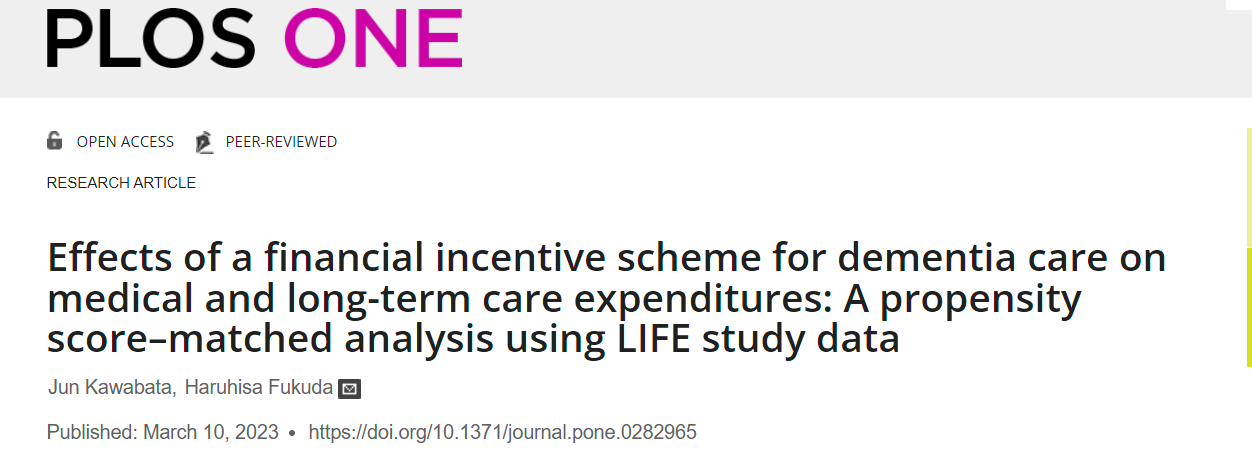Recommended reading: Effects of a financial incentive scheme for dementia care on medical and long-term care expenditures. A propensity score–matched analysis using data from Japan
Recommended reading: Effects of a financial incentive scheme for dementia care on medical and long-term care expenditures. A propensity score–matched analysis using data from Japan
News
Quasi-experimental methods Interest Group
Tools & Methods
Japan
Economics of LTC
Financing LTC
Published:
30 Oct 2023

Care Policy and Evaluation Centre, London School of Economics and Political Science
People with dementia admitted to hospital are more likely to experience negative outcomes compared to patients not living with this condition – further functional decline, longer lengths of stay (LoS), higher readmission rates, and higher mortality rates. Thus, in April 2016, the Japanese government introduced a financial incentive scheme aimed at improving the quality of hospital-based dementia care and patient outcomes by awarding additional financial benefits to providers who deliver appropriate care.
Kawabata & Fukuda (2023) have recently published a research paper evaluating this scheme. The analysis is based on the Longevity Improvement & Fair Evidence (LIFE) cohort study in Japan. More specifically, they use data from eight hospitals located within Fukuoka Prefecture, achieving a relatively small sample size of treated dementia patients (N=260). The authors use a quasi-experimental approach: Propensity Score Matching (PSM).
As many other non-experimental causal inference techniques, PSM allows for the creation of a control group by matching treated units with non-treated units of similar characteristics before the treatment or intervention took place (at baseline).
Main findings:
- The analyses found no significant differences between the case and control groups in medical expenditure, long-term care, or levels of care needs in the short-term.
- But the authors explain that this may be due to the fact that in the Japanese context, there is currently no standardised best practice to treat these patients.
- An evaluation of the scheme in the middle to long-term is needed to obtain more conclusive results.
What does the PSM approach involve?
PSM is a quasi-experimental technique developed by Rosenbaum & Rubin (1983, 1985), which creates a comparison (matched) group based on information of treated and non-treated units at baseline. The main idea is that before the intervention took place, the treated and the comparison group had similar characteristics, and therefore had a similar likelihood to be selected for participation in the scheme or intervention to be evaluated. Thus, it is fair to compare these two groups after the treatment takes place.
Any caveats?
Choosing these similar characteristics may play an important role in the creation of a ‘good’ control. In this regard, Kawabata & Fukuda (2023) explain that their analysis did not account for variations in disease severity at baseline, and this could create bias in the estimation. For instance, the treated group could have included a larger proportion of patients with advanced dementia, leading to an unfair comparison between this group and those that did not receive the intervention.
If you require more information, a very useful practical guide for the Implementation of PSM was developed by Caliendo & Kopeinig (2005).
You can find the paper by Kawabata & Fukuda at:
Kawabata J, Fukuda H (2023) Effects of a financial incentive scheme for dementia care on medical and long-term care expenditures: A propensity score–matched analysis using LIFE study data. PLoS ONE 18(3): e0282965. https://doi.org/10.1371/journal.pone.0282965

